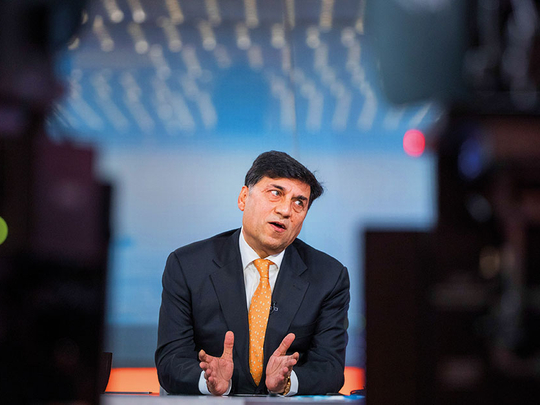
LONDON: British consumer goods group Reckitt Benckiser missed 2017 profit expectations and said tough trading in developed markets and rising commodity costs were set to continue, hitting its shares.
The maker of Lysol disinfectant and Mucinex cold medicine reported higher fourth-quarter sales on Monday, in line with expectations, and forecast an increase for this year as it looks to move on from a turbulent 2017.
It pointed to an improved performance at its recently acquired Mead Johnson baby formula business, and raised its forecast for cost savings from that deal to around $300 million (Dh1.10 billion) from the $250 million announced at the time of the acquisition.
However, 2017 earnings at the company, which has struggled with the weakest performance in its history, missed expectations and its profit margins declined, hurt by a tougher pricing environment in developed markets and increased commodity costs.
It forecast both of those issues to continue in the near term. It declined to give a margin target for 2018, but said the year would be affected by the restructuring of its business into two units, which it completed in January, and the integration of Mead Johnson.
“Margins will be the debate this morning,” said Jefferies analysts.
Reckitt’s shares were down 5.6 per cent at 0940 GMT, the biggest fall by a European blue-chip stock.
Investec analysts said the stock trades at 18.1 times expected 2018 earnings, a 4 per cent discount to rival Unilever.
“A discount is warranted, in our view, until Reckitt can return the group’s performance to sustainable mid-single digit organic sales growth,” they said.
Reckitt CEO Rakesh Kapoor declined to comment on the company’s interest in the consumer health assets currently being sold by Pfizer and Merck.
Volume not value
Like-for-like sales rose 2 per cent in the fourth quarter, helped by a strong flu season. That was roughly in line with analysts’ average estimate for 2.1 per cent growth.
But the growth was driven more by volume than pricing.
Reckitt said pricing power tailed off over the past year, as large retail customers are under pressure from online competitors. It said the pressure was worse in its hygiene business than in health.
“We absolutely do not see this as a long-term pressure, but we also do not see it going away in the very short term,” its chief financial officer said.
Mead Johnson sales rose 3 per cent, their second quarter of growth after nine quarters of decline.
Reckitt was also less affected by certain one-time items, such as a failed product launch and a safety scandal in South Korea, which hurt sales in earlier quarters. It was also hit last year by a cyber attack.
Like-for-like sales were flat for the full year, in line with the company’s forecast. Adjusted earnings per share from continuing operations were 316.9 pence, below the 318.9 pence forecast by analysts.
The company’s adjusted operating margin fell 70 basis points to 27.1 per cent.
For 2018, the company forecast revenue up 13 to 14 per cent, with like-for-like sales up 2 to 3 per cent. It stood by its medium-term target for “moderate operating margin expansion.”
— Reuters












